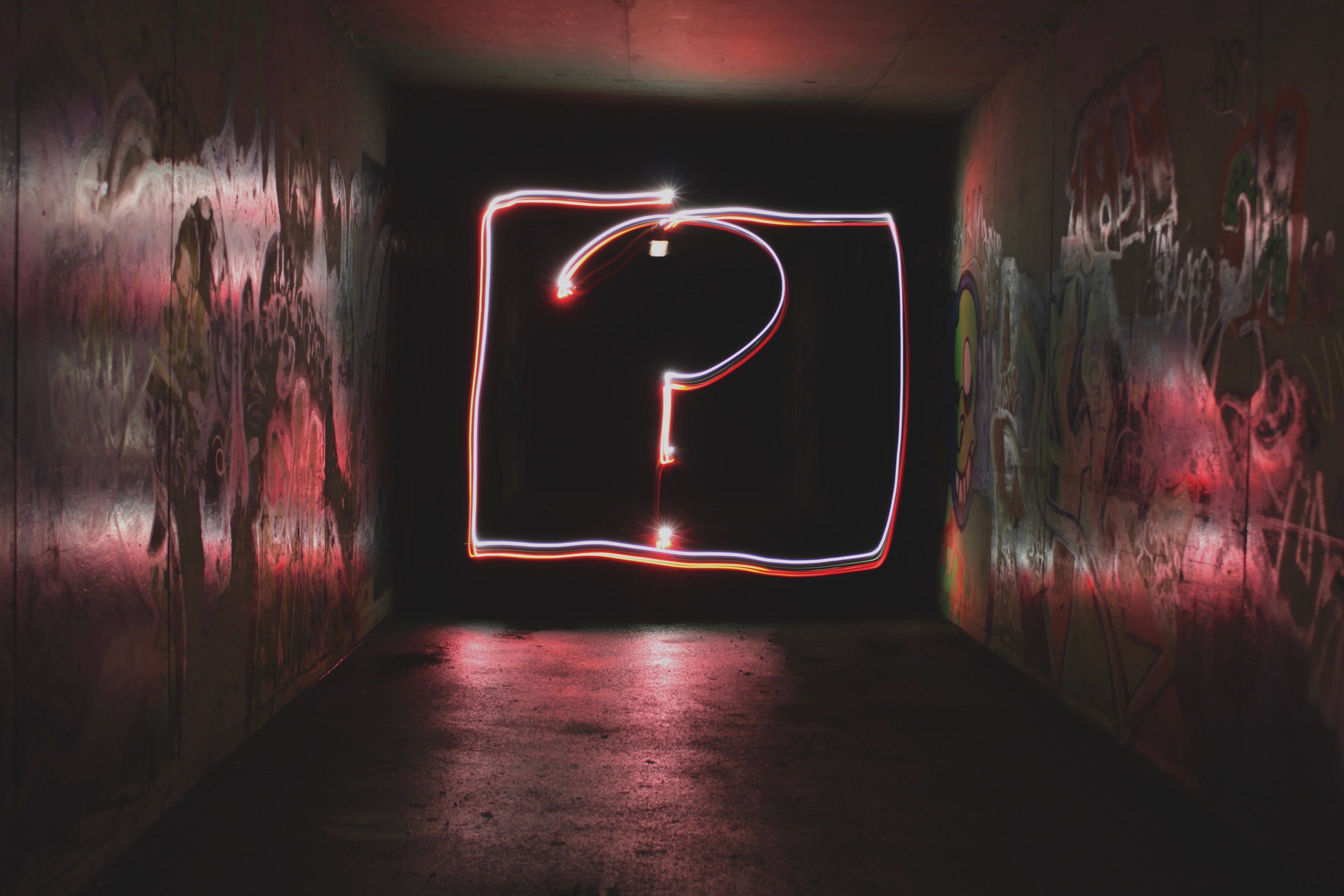Introduction
The question.
It is the most important rhetorical tool we have. We use them every day to lead, to discover, to learn, and to reflect. But do we ever stop to consider whether we are asking the right questions? You know, questions that are perfectly crafted to bring about the response we need or desire. What would your life look like if, in every situation, you always asked the perfect question?
Would you be happier?
More efficient?
More intelligent?
More sought-after?
If you, like me, answered “yes” to all of these, then you must work toward using the art of inquiry to its fullest potential. That is why, over the next several weeks, I will be writing a series called “Asking the Right Questions.” Each article will answer an important question about questions in order to help you better use them in your journey toward self-education!
First Things
The first questions I want to answer is a short one: “What is a Question?”
As I was planning the various articles of this series, the first question I asked myself was “What are the first principles of questioning?”
Should I start with the basic types of questions?
Common uses of questions?
The most basic questions that we all ask?
But I kept narrowing and searching until I arrived at the beginning. First Principles. What is the most foundational assumption we have about questions that must be explored before we can go further into asking the right questions?
A first principle is a basic assumption that cannot be deduced any further. Over two thousand years ago, Aristotle defined a first principle as “the first basis from which a thing is known.”
James Clear, First Principles: Elon Musk on the Power of Thinking for Yourself
That’s when I had a flashback to a class I took in college. History of the Constitution. Three times that semester we divided our class of nine people into three groups to recreate historic Supreme Court cases in a mock trial. The one statement my professor said over and over again was, “Never forget to define your terms!”
Question Defined
So why don’t we start with the definition?
According to the The Oxford English Dictionary, a question is “A sentence worded or expressed so as to elicit information,” or “a matter requiring resolution or discussion.”
How does this definition help us in our journey toward self-education?
First, it helps us better understand how to properly use questions in our daily conversations. According to this definition we can use questions to guide us toward three ends—information, resolution, and discussion. I’m sure you can think of many different times in your life when you have used questions to reach one (or more) of these ends. But did you use your question properly? A question should be worded in a way that leads to the desired end.
Secondly, knowing this definition helps us set our expectations for response. If we understand the type of outcome (information, resolution, or discussion) we desire before we ask our question, and we focus on properly crafting our question to guide the respondent to the desired outcome, we can be fairly certain that we will receive the correct type of response.
Information, Resolution, or Discussion?
I work for a coffee company, so I will use an example from my job to help us think through this a little more. Just like in most coffee shops we keep a pitcher of creamer available in a central location for people to use. While I was making drinks, a guest walked up holding the creamer pitcher in his hand. I could have responded in several different ways in order to bring about either information, resolution, or discussion. Here are a few examples:
“Hi! How are you?” is a pretty common question that I ask my guests. While it is small-talky, it is a question searching for discussion.
“How can I help you?” is another common guest service question, but instead of discussion, this is a question of resolution. If I were to respond to the guest with this question, I have already assessed that there is a need/problem and I am capable of addressing it.
“Is the creamer pitcher empty?” is a closed question searching for information. It requires a simple yes or no answer.
“Can I refill the creamer pitcher for you?” is also a question of resolution, but it is more specific than simply, “How can I help you?” In this case, this would be the best option, because I have already assessed the guest’s need, and now it is my responsibility to provide the resolution. The question serves to confirm the desired outcome.
While, in this scenario, the other questions may have been appropriate, they would not have been the best. It was not the right time for discussion, and I was able to gain all the necessary information through inference in this situation. Being aware of the situation allowed me to ask the right type of question to resolve the problem as quickly as possible.
Conclusion
I hope this scenario helps you think through the types of question you can ask in various circumstances in order to most efficiently reach your desired outcome. Knowing the answer to “What is a question?” is a vital first step toward asking the right questions. As we go through this series, we will refer back to this first principle often because being more aware of whether we seek information, resolution, or discussion will better equip us to use questions more effectively toward our own personal growth.
This is the first post in an ongoing series entitled Asking the Right Questions.

